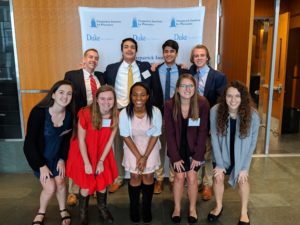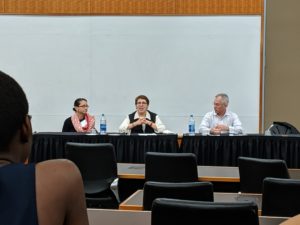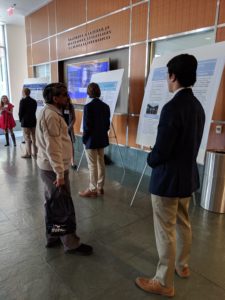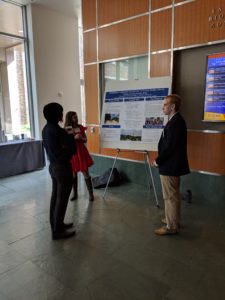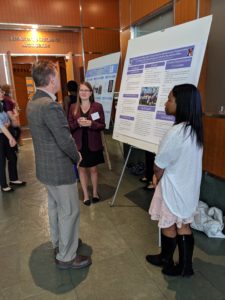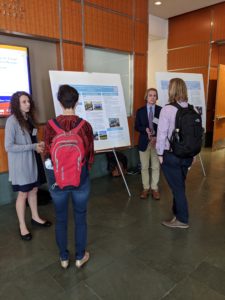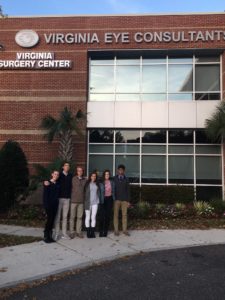Written by Madeleine Munn ’19.
On the eve of the trip to Belize tomorrow, I have a few words. This year was the first and only of my blog manager responsibilities, and I have been honored to share updates on the program. In the final weeks of May myself and my five fellow seniors graduated from the fine institution that is Norfolk Academy and thereby completed the fellows program. It never really ends, though, because the things we have learned, the people we have come to know and love, and the experiences we have shared will last forever. It is incredible. At our final fellows dinner for all of the programs’ students and the parents of the seniors, one senior from each program in the BLP gave a speech. This was mine:
The Global Health Fellows have been quite busy this year – three years ago, our program shifted fieldwork locations from Haiti to Belize. We are now going into our third year of work in rural San Antonio, Belize, partnering with GPSA, or Global Public Service Academy, a hands-on, academic, service-learning program in collaboration with Duke University and Johns Hopkins University. During our time on the ground in San Antonio, we either go door-to-door conducting home visits with community health workers, measuring people’s vital signs, including blood pressure and blood glucose levels, or teach lessons on hygiene, nutrition, and reproductive health at the local elementary school. During our home visits, we also conduct a needs assessment that we craft in advance.
Over the course of this year, the Global Health Fellows have split up into five different groups to concentrate on different areas that we believe we can make a positive impact on. These groups have been researching and working on different projects throughout the year and will be working with the community this summer to implement them in some cases or continue to monitor and evaluate existing projects in other cases. We have a health and nutrition group that is working toward increasing awareness on local and larger health issues through different curricula, a group working to help community health workers effectively organize data, a group starting a family exercise class in the community, a technology group that is implementing a computer literacy program at the United Pentecostal School, and a women’s’ empowerment group that has written two books about puberty and created a curriculum for young girls at the school on various topics. Project work is a huge part of our program, and we are constantly evaluating and offering constructive criticism toward our own projects and others, as well as monitoring and evaluating any projects we implement.
This program has taught us so much about leading ourselves and leading others. We have been thrust into uncomfortable, even intimidating, situations, relying on only ourselves to solve problems. It is routine for a Global Health Fellow to hold a lengthy discussion with an expert in the field, play with kids without being able to fluently speak their language, and lead the entire program in a group presentation. All of these responsibilities create leadership skills and shape us into competent, confident leaders now and in the future.
Even in all of our hard work, we have stood on the shoulders of giants. Our incredible experiences have shaped our work in countless ways and we will be forever grateful to the people who gave us those experiences. Our directors, first and foremost, have been invaluable resources in and out of the world of public health. The people we’ve met along the way, the panels we’ve heard, the kids we’ve played-with in Haiti and Belize- they all breathed life into the knowledge and gave us confidence and wisdom that made our projects, and ourselves, what and who we are today.
The six of us were not close before Global Health, but since then we have grown alongside each other and been brought together by our shared experiences. We have performed skits, given presentations, posed for numerous cohort photos, stayed up all night in Haiti, eaten Panda Express in airports. We have picked each other up and made each other better. We have shared in victories and consoled in hard situations; we have adventured together; we have worked hard together, and in the process, we have formed some of the most special bonds.
Bill Gates said that “If you give people tools, and they use their natural abilities and their curiosity, they will develop things in ways that will surprise you very much beyond what you might have expected.” That is what this program has done for us: it has given tools to students with natural abilities and curiosity, and we have developed things in ways even we have not expected. So, we are grateful to the Fellows Program. We are so, so, grateful, because it has given us tools, and experiences but even more than that, it has given us each other and a new lens through which to see ourselves. And that is a gift.
I read that from my heart, and I still mean it from my very core. Thank you forever to this program for all it has done for us. My last blog post renders me sad but also so truly excited for a new chapter in my life and in the life of the program. I have the highest hopes and the best wishes for it and each of the brilliant minds it holds and will hold! Now, I am officially signing off of the Global Health Fellows Blog.
